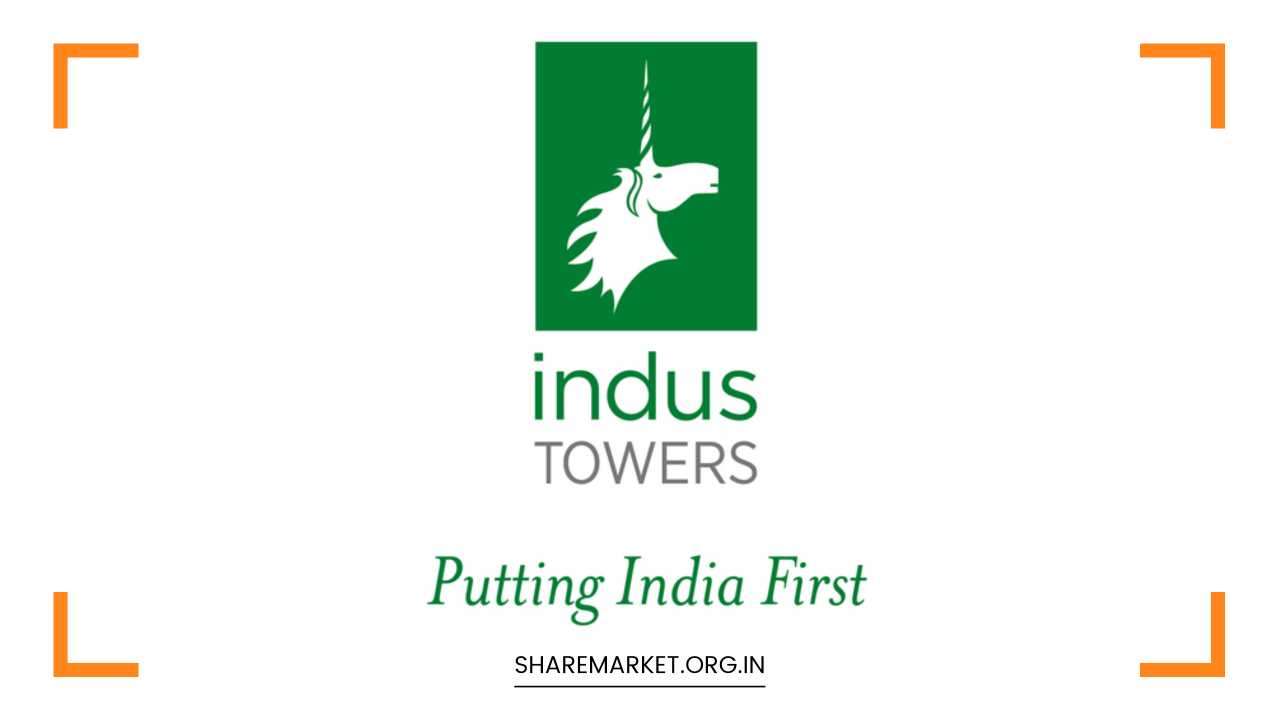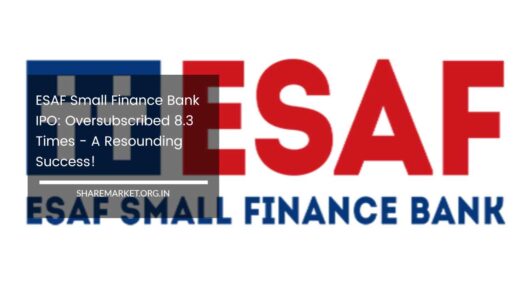Indus Towers Share Price Surges 2% After JP Morgan Raises Target Price by 47%

Indus Towers
Indus Towers Shares Surge as JP Morgan Boosts Target Price by 47%
On September 11, shares of Indus Towers saw a significant uptick of over 2% in early trading, driven by a favorable update from JP Morgan.
The global brokerage firm has not only upgraded its rating for Indus Towers from ‘Neutral’ to ‘Overweight’ but also substantially increased its target price for the stock from Rs 340 to Rs 500.
This target price adjustment represents a remarkable 47% increase, signaling a potential gain of approximately 17% from the stock’s previous closing price.
As of 1:50 PM on the same day, Indus Towers shares were trading at Rs 434.25 on the NSE, reflecting a 2.08% increase from the previous trading session.
The stock has demonstrated impressive performance throughout the year, with a year-to-date gain of nearly 114%.
Over the past year, it has delivered an extraordinary return of about 125.58% to its investors, underscoring a period of robust growth and investor confidence.
JP Morgan’s revised outlook is underpinned by three principal reasons, which the brokerage detailed in its latest report:
- Stronger Prospects Compared to Vodafone Idea
JP Morgan’s analysis suggests that Indus Towers is well-positioned to outperform its competitors, particularly Vodafone Idea. The brokerage expects that Vodafone Idea’s increased capital expenditure and its efforts to expand tower and tenancy rollout will drive significant growth in Indus Towers’ revenue and operating profit over the fiscal years 2025 to 2027. This forecast is based on the assumption that Indus Towers will benefit from Vodafone Idea’s expansion activities, leading to enhanced revenue streams and improved profitability for the tower infrastructure provider.
- Reduction in Vodafone Idea’s Outstanding Payments
Another critical factor influencing JP Morgan’s optimistic outlook is the reduction in Vodafone Idea’s outstanding payments. The brokerage notes that Vodafone Idea’s dues have decreased to Rs 46 billion, reflecting an improvement in the company’s financial stability. JP Morgan expresses confidence in the recovery of the remaining outstanding amount, which could pave the way for Indus Towers to receive regular dividend payments starting in fiscal year 2026. This potential financial stability for Vodafone Idea is viewed positively as it could reduce payment uncertainties and bolster Indus Towers’ financial health.
- Anticipated Growth in Operating Profit and EPS
JP Morgan projects that Indus Towers will experience an 11% growth in operating profit and a 17% increase in earnings per share (EPS) from FY 2024 to FY 2027. These growth estimates are pivotal in JP Morgan’s decision to upgrade the stock’s rating and increase the target price. The brokerage’s favorable forecast for operating profit and EPS reflects confidence in the company’s ability to generate substantial returns and sustain its growth trajectory. As a result, JP Morgan finds Indus Towers’ valuation more attractive compared to other major players in the sector, including Bharti Airtel and Bharti Hexcom.
Despite the bullish outlook from JP Morgan, it is worth noting that Indus Towers has recently faced contrasting views from other financial analysts.
Earlier this month, Goldman Sachs issued a downgrade on Indus Towers, lowering its rating from ‘Neutral’ to ‘Sell’.
However, Goldman Sachs did raise its target price from Rs 220 to Rs 350, acknowledging improvements in the company’s fundamentals.
The brokerage adjusted its EBITDA estimates upward by as much as 17%, reflecting a positive shift in its financial outlook for the company.
Goldman Sachs’ cautious stance is primarily attributed to concerns about the declining market share of Vodafone Idea, which it believes could exert ongoing pressure on Indus Towers.
While Goldman Sachs recognizes the recent improvements and increased EBITDA estimates, it remains skeptical about further substantial re-ratings of the stock.
The brokerage’s apprehension is rooted in the potential long-term impact of Vodafone Idea’s market share erosion on Indus Towers’ performance and financial stability.
The divergence in opinions between JP Morgan and Goldman Sachs highlights the complexity of the investment landscape for Indus Towers.
While JP Morgan’s report emphasizes a favorable growth outlook and increased valuation based on improved prospects and financial stability, Goldman Sachs’ cautious approach reflects broader market concerns and uncertainties surrounding Vodafone Idea’s market dynamics.
Investors should consider these differing perspectives when evaluating their positions in Indus Towers. The positive view from JP Morgan suggests that the stock may continue to benefit from favorable market conditions and strategic advantages, while Goldman Sachs’ cautious stance serves as a reminder of potential risks and challenges that could affect the company’s future performance.
In conclusion, Indus Towers’ recent stock performance and the contrasting analyses from major brokerages underscore the dynamic nature of the market and the varying factors influencing investment decisions.
As the company navigates its growth trajectory and responds to evolving market conditions, investors will need to stay informed and weigh the insights from different analysts to make well-informed investment choices.

















